First Person: Michael Volpe on the utopian thinking behind his new If Opera company | reviews, news & interviews
First Person: Michael Volpe on the utopian thinking behind his new If Opera company
First Person: Michael Volpe on the utopian thinking behind his new If Opera company
Bold aims for country-house opera with a difference
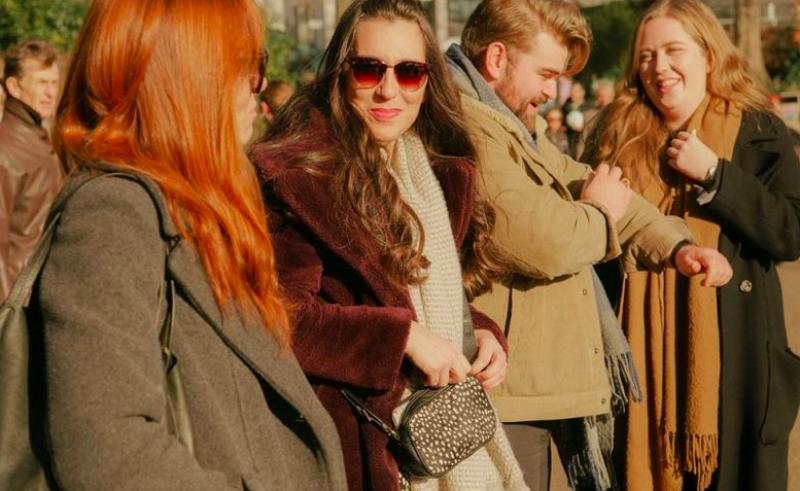
“But what’s in it for you?”. It was a simple enough question, asked by an accomplished opera singer. It stemmed from hearing that the new version of the Iford Arts opera company I was running was aiming for a different kind of guiding philosophy: it would have a repertory ensemble, who would be paid weekly wages and would work under a clearly defined code of conduct that placed them front and centre of our organisation, attempting to return agency to them.
I had no smart-arsed reply to the question because there wasn’t one, but I was taken aback by what it had revealed about the psychology of singers, especially during and since the pandemic; an institutionalised cynicism bled from all quarters. I explained what is genuinely the primary motivating reason behind the shift: namely, that a happy company produces better work.
We have practical reasons for wanting to reintroduce the ensemble system, not least of which is financial predictability and stability – i.e. IfO can plan around the fixed cost of an ensemble, contracted people who stay with us through the season. For any industry that takes a new path, and keeps going, moves further away from the things it once did, eventually those historical behaviours begin to feel radical and risky in a historical context. All we have done at If Opera is decide to withdraw from the current system and just do things our way; and the pandemic was undoubtedly the push required. (Pictured below: If Opera's home at Balcombe Court near Bradford-upon-Avon) 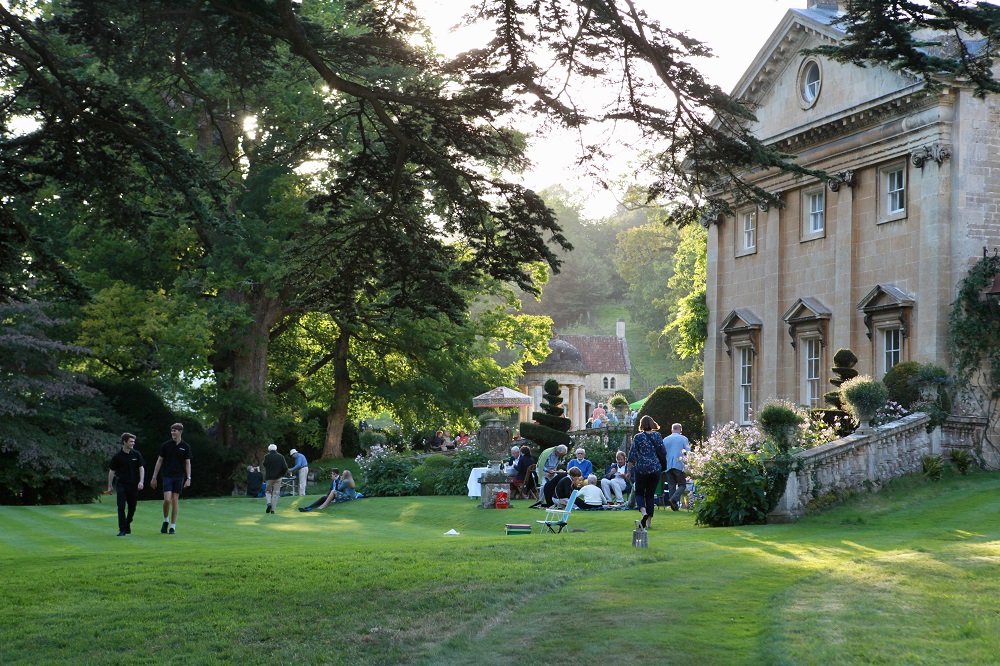 Covid’s arrival coincided with my pre-announced final year at Opera Holland Park. It was peculiar to be faced with what felt initially like an existential crisis for the arts, but to end up seeing what an enormous opportunity to improve things it offered. When work began again in the summer of 2020, the apocalyptic atmosphere and restrictions had driven the industry to find ways to slash the disproportionate budgets opera often works with, to envisage new methods of working, to eschew the traditional concepts of big, visual opera and replace them with emotional, stripped-back performance. Audiences and artists were energised.
Covid’s arrival coincided with my pre-announced final year at Opera Holland Park. It was peculiar to be faced with what felt initially like an existential crisis for the arts, but to end up seeing what an enormous opportunity to improve things it offered. When work began again in the summer of 2020, the apocalyptic atmosphere and restrictions had driven the industry to find ways to slash the disproportionate budgets opera often works with, to envisage new methods of working, to eschew the traditional concepts of big, visual opera and replace them with emotional, stripped-back performance. Audiences and artists were energised.
But there was a disturbing side to it all, too, and this mainly involved the undoubted trauma being felt by the suddenly unemployed artists, creatives and technical personnel, most of whom are freelance/self-employed and were thus vulnerable and expendable. It is unfair to suggest all companies behaved badly as the pandemic took hold – some were generous, understanding and helped performers financially – but there is no question that those on the management side of a company were in a far stronger and securer position.
Conversations about agency, equality, the treatment of artists by companies et al had occupied the industry for quite a while before the pandemic struck. Covid, though, also showed that despite that, little, if anything, had really changed; worse still, I think it demonstrated that artists had never really expected it to change at all. (Pictured below: Susan Bullock, a pillar of support for singers and other musicians throughout the Covid crisis, in the company's MezzoCav last year) 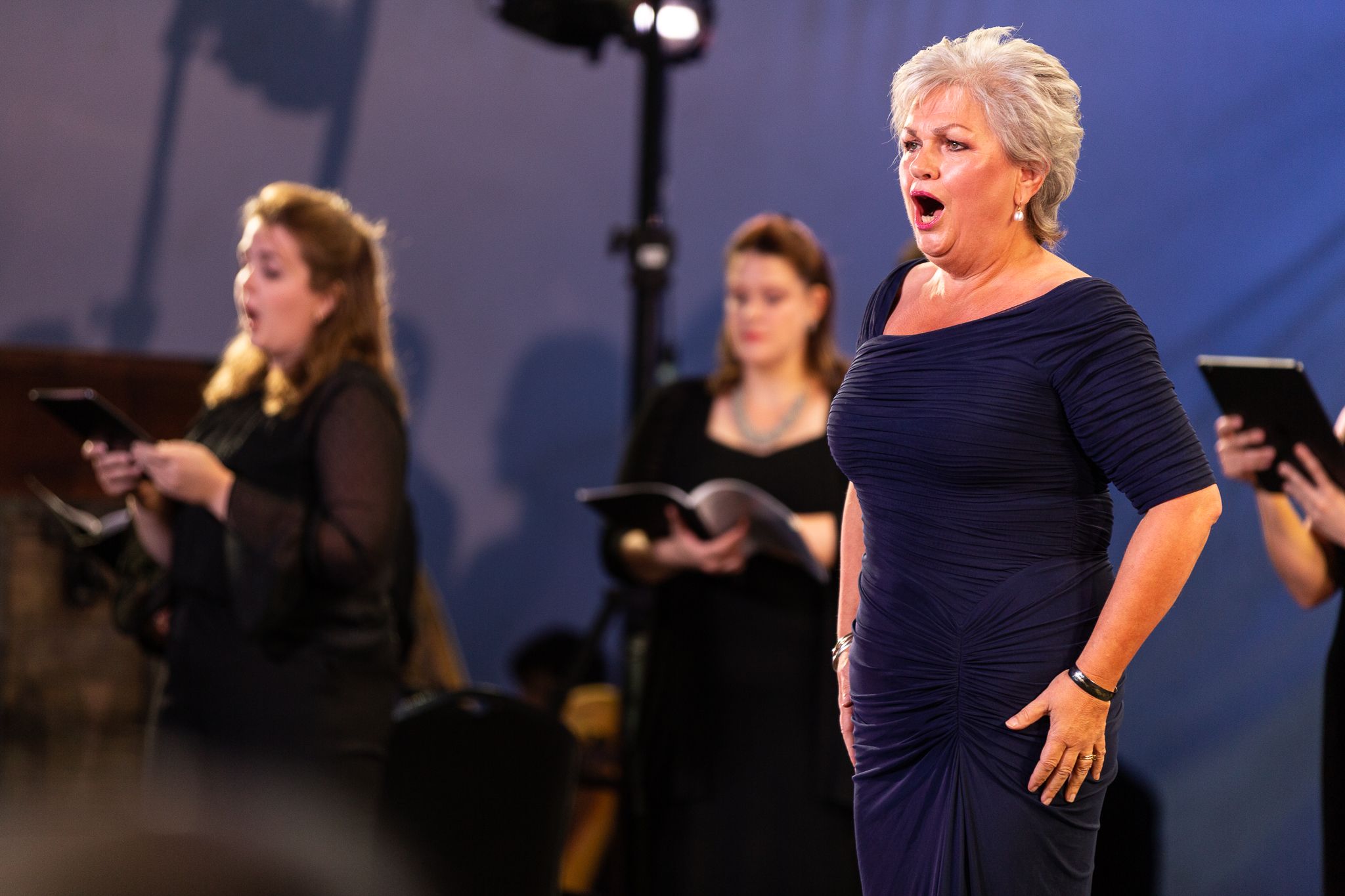 I sat in on several well attended Zoom conferences during the pandemic that were seeking to develop recovery strategies for the industry once the pandemic abated. These featured lots of singers, directors, designers, company executives and technical professionals. But every single topic or idea, jargonist or otherwise, simply couldn’t get past the raw emotional demands that things had to change for those not in management at companies. Opera, it became clear, wasn’t going to get back on track without the security and status of artists improving greatly; and simply providing regular pay would not be enough. The conditions and practices that had made artists so expendable to the very industry that relied upon them needed addressing, too.
I sat in on several well attended Zoom conferences during the pandemic that were seeking to develop recovery strategies for the industry once the pandemic abated. These featured lots of singers, directors, designers, company executives and technical professionals. But every single topic or idea, jargonist or otherwise, simply couldn’t get past the raw emotional demands that things had to change for those not in management at companies. Opera, it became clear, wasn’t going to get back on track without the security and status of artists improving greatly; and simply providing regular pay would not be enough. The conditions and practices that had made artists so expendable to the very industry that relied upon them needed addressing, too.
The dynamics of all large arts companies feature an imbalance between the artistic and administrative leadership of a company and the artists who actually do the work. You tend to hear as much about the brilliance of managers as you do the talent and I can recall countless incidents when artists, thinking they had made a faux pas in my presence (which was usually no more than expressing an opinion) had a look of horror and fear on their faces, as though their careers had flashed before their eyes. As a habitual insubordinate myself, this is a nonsense I have always felt needs to end. (Pictured below: the If Opera ensemble singers at the spring photoshoot.earlier this year)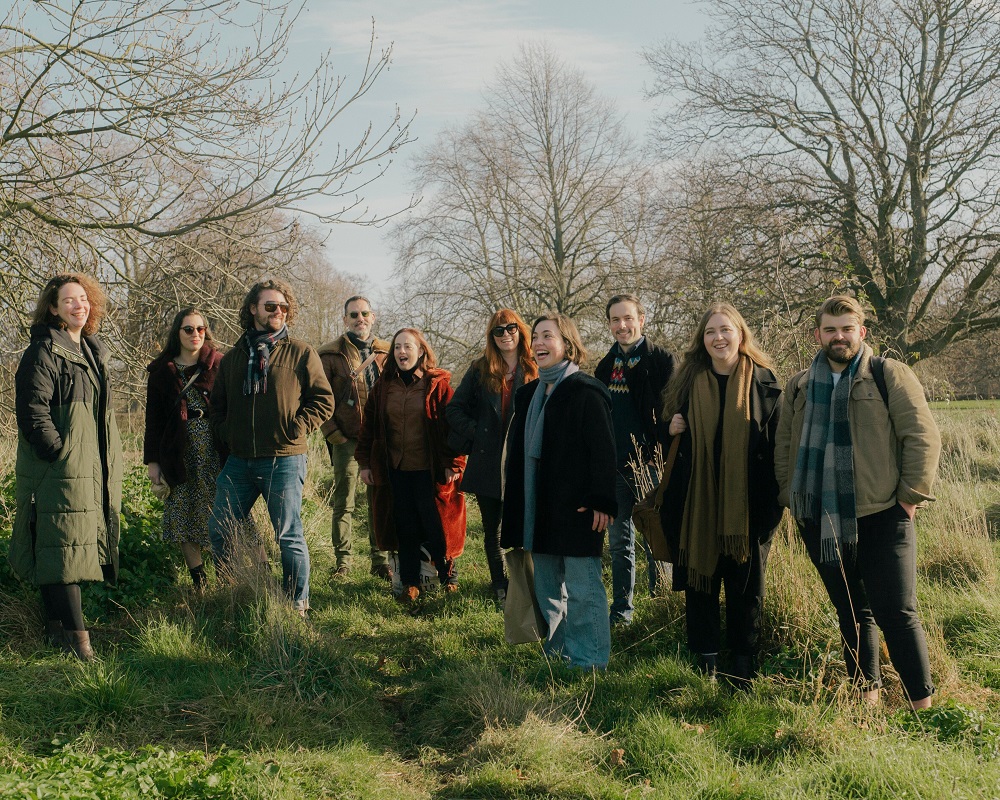 I had decided to take early retirement from OHP for a plethora of reasons, one of which was that, after 30 years, I felt I had made my contribution, such as it was, to the operatic ecology of the UK. I think what we achieved at OHP had proved a lot of people who ridiculed our early ideas and ambitions were wrong. We changed the business and showed a new way was possible, and the company continues to thrive under many of those same principles of accessibility, repertory courage and a "family" ideal. Post-retirement, I wasn’t necessarily aiming to start a new revolution in the opera industry, but I did think there was an opportunity to change the reality for the people who make our business what it is.
I had decided to take early retirement from OHP for a plethora of reasons, one of which was that, after 30 years, I felt I had made my contribution, such as it was, to the operatic ecology of the UK. I think what we achieved at OHP had proved a lot of people who ridiculed our early ideas and ambitions were wrong. We changed the business and showed a new way was possible, and the company continues to thrive under many of those same principles of accessibility, repertory courage and a "family" ideal. Post-retirement, I wasn’t necessarily aiming to start a new revolution in the opera industry, but I did think there was an opportunity to change the reality for the people who make our business what it is.
So in conceiving If Opera (the question “what if?” being its driving idea), we decided that, having registered the pain and suffering of artists, we would try to create a company that not only offered them something new, but might just plant the seeds of wider change, a transformation that recalibrates the concept singers have of a successful career and the expectations and perceptions of audiences.
Baritone Paul Carey Jones has been very engaged with the issues around the pandemic – he even wrote a book about it – and believes we need to take a thoroughgoing approach to mending the industry’s ways. “We flattered ourselves as singers that the industry genuinely cared about us. Our self-esteem and self-image is so tied up with what we do on stage,” he says, “but the trauma was realising that we were not as important as we thought. I guess that moment has gone now, so the industry has to work on ways to ensure we never feel like that again.” 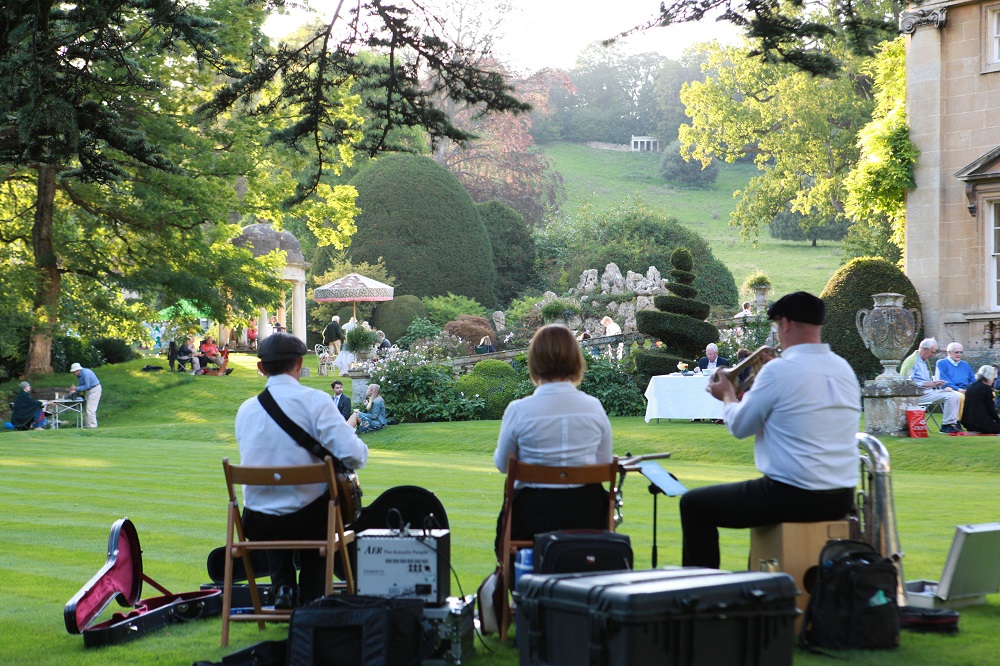 Carey Jones also agrees that singers have to play their part and re-evaluate their own perceptions of both themselves and what constitutes a successful career. “It is important that IfO are giving their ensemble the equal status across the production – that provides an enormously vibrant basis upon which this company of professionals can collaborate and work creatively – without any of them being in a position to lord it over another.”
Carey Jones also agrees that singers have to play their part and re-evaluate their own perceptions of both themselves and what constitutes a successful career. “It is important that IfO are giving their ensemble the equal status across the production – that provides an enormously vibrant basis upon which this company of professionals can collaborate and work creatively – without any of them being in a position to lord it over another.”
You can see that the IfO ensemble is the emphatic centre of our communications – the singers ARE IfO – in the first four pages of our season brochure. They focus entirely upon the people who are going to deliver it; the operas themselves almost seem secondary. For Meinir Wyn Roberts, who will sing Magda in La rondine, this simple elevation was an entirely new experience. “I felt really proud seeing those pages. I felt ‘seen’. It was nice that the company had taken the trouble to arrange a photoshoot with a fantastic photographer in an unusual setting, but the images were not arranged in a hierarchical way – our names were on them, but our roles weren’t. It was empowering.”
Katherine McIndoe (pictured below with Andrés Presno in the company's "Chez Bullier" event earlier this year) , who is playing the lead in Wolf-Ferrari’s Il segreto di Susanna, will also perform as a member of the ensemble in La rondine and, like Meinir, says things already feel different, even before the ensemble gathers to begin work properly. “I even felt able to ask the company to use a different picture from the one they chose for the brochure and social media,” she says. “Having done young artists' programmes and felt very much as though we were on the bottom rung, it is empowering [that word again] to feel an equal part of a company. It is also clear to me that being a part of the ensemble is just as important to the company as being the principal in the Wolf-Ferrari.” 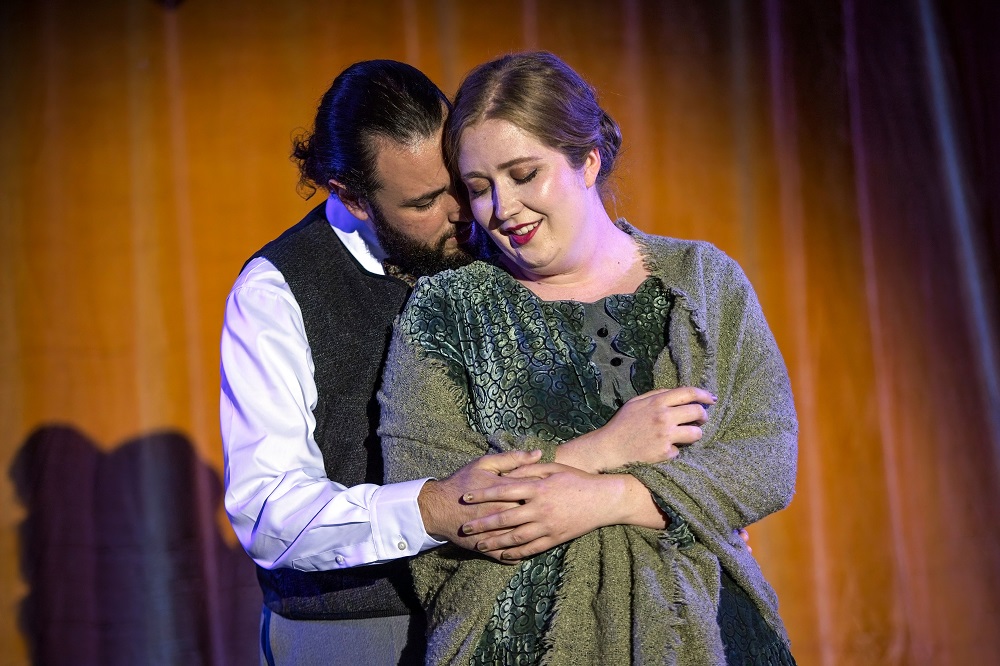 If Opera has furnished the ensemble with a list of practices it will abide by – these include elements of openness, the ability of a singer to voice an opinion without fear, consultation etc. This aspect of our philosophy, especially for female members of the company, feels like a big step. “I’m often just able to get on with things,” says McIndoe, “but there is always a power dynamic that quells your opinion.”
If Opera has furnished the ensemble with a list of practices it will abide by – these include elements of openness, the ability of a singer to voice an opinion without fear, consultation etc. This aspect of our philosophy, especially for female members of the company, feels like a big step. “I’m often just able to get on with things,” says McIndoe, “but there is always a power dynamic that quells your opinion.”
All of us at If Opera are acutely aware that words have to be backed by deeds – not least among the expectations we have is the need to produce first-class opera. It is remarkable that something as damaging and traumatic as the pandemic has actually given us the tools and opportunity to change our industry from the ground up, but I know we are pushing something of a utopian ideal. Conversely, such have been the "hits" to the social fabric and psychology of the nation in recent years, and in particular the arts (ahem, Brexit), I have become far more willing to countenance lofty, idealistic ambitions. And then I remembered how lofty and idealistic Opera Holland Park was when we began it in 1996.
So who says we can’t change the world again?
- If Opera launches tonight with a sold-out Picnic Prom featuring jazz singer Clare Teal. The opera programme begins on 26 August. Full details here
- More opera reviews on theartsdesk
Explore topics
Share this article
The future of Arts Journalism
You can stop theartsdesk.com closing!
We urgently need financing to survive. Our fundraising drive has thus far raised £49,000 but we need to reach £100,000 or we will be forced to close. Please contribute here: https://gofund.me/c3f6033d
And if you can forward this information to anyone who might assist, we’d be grateful.

Subscribe to theartsdesk.com
Thank you for continuing to read our work on theartsdesk.com. For unlimited access to every article in its entirety, including our archive of more than 15,000 pieces, we're asking for £5 per month or £40 per year. We feel it's a very good deal, and hope you do too.
To take a subscription now simply click here.
And if you're looking for that extra gift for a friend or family member, why not treat them to a theartsdesk.com gift subscription?
more Opera
 The Makropulos Case, Royal Opera - pointless feminist complications
Katie Mitchell sucks the strangeness from Janáček’s clash of legalese and eternal life
The Makropulos Case, Royal Opera - pointless feminist complications
Katie Mitchell sucks the strangeness from Janáček’s clash of legalese and eternal life
 First Person: Kerem Hasan on the transformative experience of conducting Jake Heggie's 'Dead Man Walking'
English National Opera's production of a 21st century milestone has been a tough journey
First Person: Kerem Hasan on the transformative experience of conducting Jake Heggie's 'Dead Man Walking'
English National Opera's production of a 21st century milestone has been a tough journey
 Madama Butterfly, Irish National Opera review - visual and vocal wings, earthbound soul
Celine Byrne sings gorgeously but doesn’t round out a great operatic character study
Madama Butterfly, Irish National Opera review - visual and vocal wings, earthbound soul
Celine Byrne sings gorgeously but doesn’t round out a great operatic character study
 theartsdesk at Wexford Festival Opera 2025 - two strong productions, mostly fine casting, and a star is born
Four operas and an outstanding lunchtime recital in two days
theartsdesk at Wexford Festival Opera 2025 - two strong productions, mostly fine casting, and a star is born
Four operas and an outstanding lunchtime recital in two days
 The Railway Children, Glyndebourne review - right train, wrong station
Talent-loaded Mark-Anthony Turnage opera excursion heads down a mistaken track
The Railway Children, Glyndebourne review - right train, wrong station
Talent-loaded Mark-Anthony Turnage opera excursion heads down a mistaken track
 La bohème, Opera North review - still young at 32
Love and separation, ecstasy and heartbreak, in masterfully updated Puccini
La bohème, Opera North review - still young at 32
Love and separation, ecstasy and heartbreak, in masterfully updated Puccini
 Albert Herring, English National Opera review - a great comedy with depths fully realised
Britten’s delight was never made for the Coliseum, but it works on its first outing there
Albert Herring, English National Opera review - a great comedy with depths fully realised
Britten’s delight was never made for the Coliseum, but it works on its first outing there
 Carmen, English National Opera review - not quite dangerous
Hopes for Niamh O’Sullivan only partly fulfilled, though much good singing throughout
Carmen, English National Opera review - not quite dangerous
Hopes for Niamh O’Sullivan only partly fulfilled, though much good singing throughout
 Giustino, Linbury Theatre review - a stylish account of a slight opera
Gods, mortals and monsters do battle in Handel's charming drama
Giustino, Linbury Theatre review - a stylish account of a slight opera
Gods, mortals and monsters do battle in Handel's charming drama
 Susanna, Opera North review - hybrid staging of a Handel oratorio
Dance and signing complement outstanding singing in a story of virtue rewarded
Susanna, Opera North review - hybrid staging of a Handel oratorio
Dance and signing complement outstanding singing in a story of virtue rewarded
 Ariodante, Opéra Garnier, Paris review - a blast of Baroque beauty
A near-perfect night at the opera
Ariodante, Opéra Garnier, Paris review - a blast of Baroque beauty
A near-perfect night at the opera
 Cinderella/La Cenerentola, English National Opera review - the truth behind the tinsel
Appealing performances cut through hyperactive stagecraft
Cinderella/La Cenerentola, English National Opera review - the truth behind the tinsel
Appealing performances cut through hyperactive stagecraft

Add comment